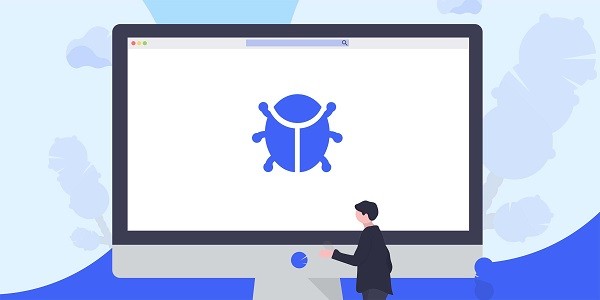Detailed explanation of 7 ways to create DataFrame in Python, combined with data collection scenarios to analyze the optimization effect of proxy IP technology on large-scale data processing, IP2world provides multi-type proxy service support. What is Python DataFrame?DataFrame is a two-dimensional table object in the Python Pandas library for storing structured data. It supports row and column indexing, data type conversion, and complex operations, and is widely used in data analysis, machine learning, and other fields. In scenarios involving network data collection (such as crawling e-commerce prices or inventory information), DataFrame is often used to store raw data, and IP2world's dynamic residential proxy service can provide stable IP resources for high-frequency data crawling, avoiding data interruptions caused by anti-crawling mechanisms. Why do you need to master multiple ways to create DataFrame?The format differences of different data sources require developers to flexibly choose the construction method:Local structured data (such as CSV, Excel) is suitable for direct reading as DataFrame;The JSON data returned by the API needs to be nested and parsed and reorganized into a table;Real-time crawling of web page content may involve unstructured text cleaning and conversion.Mastering a variety of creation techniques can significantly improve the efficiency of data preprocessing, especially when processing dynamically updated data sets (such as Costco product prices). Combining IP rotation technology can ensure the stability of the data capture process. How to build a DataFrame from scratch?Dictionary direct conversionDefine column data through a key-value pair dictionary, where the key is the column name and the value is the data in list form. This method is suitable for small-scale data entered manually, but has high requirements for data type consistency.Nested list structureConvert a two-dimensional array containing tuples or lists to a DataFrame. You need to specify the column names with the columns parameter. This is suitable for fast conversion from existing array structures in memory.Numpy array generationUse pd.DataFrame(np.array) to convert NumPy matrices into tables, retaining the efficiency of matrix operations. It is often used in scientific computing scenarios.Line-by-line append modeUse pd.concat() or df.append() to dynamically add row data, which is suitable for streaming data collection. Please note that frequent operations may cause memory problems, and you can combine block processing to optimize performance. How to import a DataFrame from an external data source?File reading: Directly parse local files through pd.read_csv() and pd.read_excel(), supporting custom delimiters, encoding formats and missing value processing.Database query: Use pd.read_sql() to connect to MySQL or PostgreSQL and map the SQL query results to a DataFrame.API interface call: For APIs that return JSON format (such as public interfaces of social media platforms), use pd.json_normalize() to expand the nested structure.For interfaces that require authentication or IP whitelisting, IP2world's static ISP proxy can provide fixed IP addresses to meet the stability requirements of API calls. How to optimize DataFrame performance when collecting large amounts of data?Memory management: Specify the column data type through the dtype parameter (such as converting float64 to float32), reducing memory usage by more than 30%.Parallel processing: Use the swifter library to speed up the apply() function operation, or use Dask to implement distributed computing.Proxy IP integration: Configure IP2world's S5 proxy in the crawler script to circumvent anti-crawling restrictions through multi-IP rotation to ensure data integrity and crawling efficiency. For example, setting proxy pool parameters can automatically switch IP addresses and write the collection results to DataFrame in real time for cleaning. What preprocessing must be done after DataFrame creation?Missing value processing: Use fillna() to fill or dropna() to delete null values to avoid subsequent analysis bias.Type conversion: Use astype() to unify data types and improve computing efficiency.Deduplication: Eliminate duplicate records through drop_duplicates(), especially when the data source contains multiple crawler nodes.Index optimization: Set DatetimeIndex for time series data to speed up time-based slice queries. Why do DataFrame and Proxy IP technologies need to work together?In large-scale data collection scenarios, the efficiency of DataFrame construction is often limited by the stability of network requests:IP blocking risk: Frequent visits to a single IP address by the target website will trigger the blocking mechanism, resulting in data loss;Geographical restrictions: some content requires an IP address from a specific region to access (such as localized promotional information);Request frequency control: Distribute request pressure through proxy IP pool and maintain a reasonable access interval.IP2world's exclusive data center proxy supports high-concurrency requests. Together with Python asynchronous frameworks (such as aiohttp), it can complete the collection of hundreds of thousands of data points in a short period of time and store them in DataFrame. It is suitable for commercial analysis scenarios such as competitive product price monitoring and inventory warning. As a professional proxy IP service provider, IP2world provides a variety of high-quality proxy IP products, including dynamic residential proxy, static ISP proxy, exclusive data center proxy, S5 proxy and unlimited servers, suitable for a variety of application scenarios. If you are looking for a reliable proxy IP service, welcome to visit IP2world official website for more details.
2025-04-10









